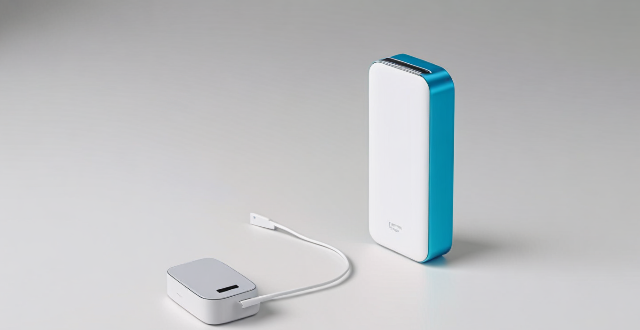A portable power bank is a device that allows you to charge your phone on the go. While it is unlikely that a power bank will cause overcharging to your phone, there are some situations where it could occur. To avoid this risk, use a high-quality power bank from a reputable manufacturer and follow proper charging practices. This includes using compatible devices and cables, avoiding leaving the power bank connected for extended periods of time after the phone's battery is fully charged, and regularly inspecting the power bank for any signs of damage or wear and tear. By doing so, you can minimize the risk of overcharging and enjoy the benefits of having a charged phone wherever you go.

Can a Portable Power Bank Cause Overcharging to My Phone?
Introduction
A portable power bank, also known as a mobile charger or battery pack, is a convenient device that allows you to charge your phone on the go. However, some people worry about the potential for overcharging their phones using these devices. In this article, we will explore whether a portable power bank can cause overcharging to your phone and what precautions you should take to avoid any damage.
What is Overcharging?
Overcharging occurs when a device is charged beyond its maximum capacity, which can lead to damage to the battery and other components. Most modern smartphones have built-in protection mechanisms that prevent overcharging by stopping the flow of electricity once the battery is fully charged.
How Does a Portable Power Bank Work?
Portable power banks work by storing electrical energy in a rechargeable battery and then transferring that energy to your phone through an USB cable. The power bank's battery is typically much larger than your phone's battery, allowing it to provide multiple charges before needing to be recharged itself.
Can a Portable Power Bank Cause Overcharging?
In most cases, a portable power bank cannot cause overcharging to your phone. This is because modern smartphones are designed with safety features that prevent overcharging. When the phone's battery reaches full capacity, the charging process automatically stops, even if the power bank continues to supply electricity.
However, there are some situations where overcharging could occur:
1. If the power bank has a faulty charging circuit or is damaged in some way, it may continue to supply electricity even after the phone's battery is fully charged. This could potentially cause overcharging and damage to the phone's battery.
2. If the power bank is left connected to the phone for an extended period of time after the phone's battery is fully charged, it could cause overheating and potential damage to both the power bank and the phone.
To avoid these risks, it is important to use a high-quality power bank from a reputable manufacturer and to follow proper charging practices:
* Only use the power bank with compatible devices and cables.
* Avoid leaving the power bank connected to your phone for extended periods of time after the phone's battery is fully charged.
* Regularly inspect the power bank for any signs of damage or wear and tear.
Conclusion
While a portable power bank can be a convenient tool for keeping your phone charged on the go, it is important to use them safely and responsibly to avoid any potential damage to your device. By following proper charging practices and using a high-quality power bank from a reputable manufacturer, you can minimize the risk of overcharging and enjoy the benefits of having a charged phone wherever you go.